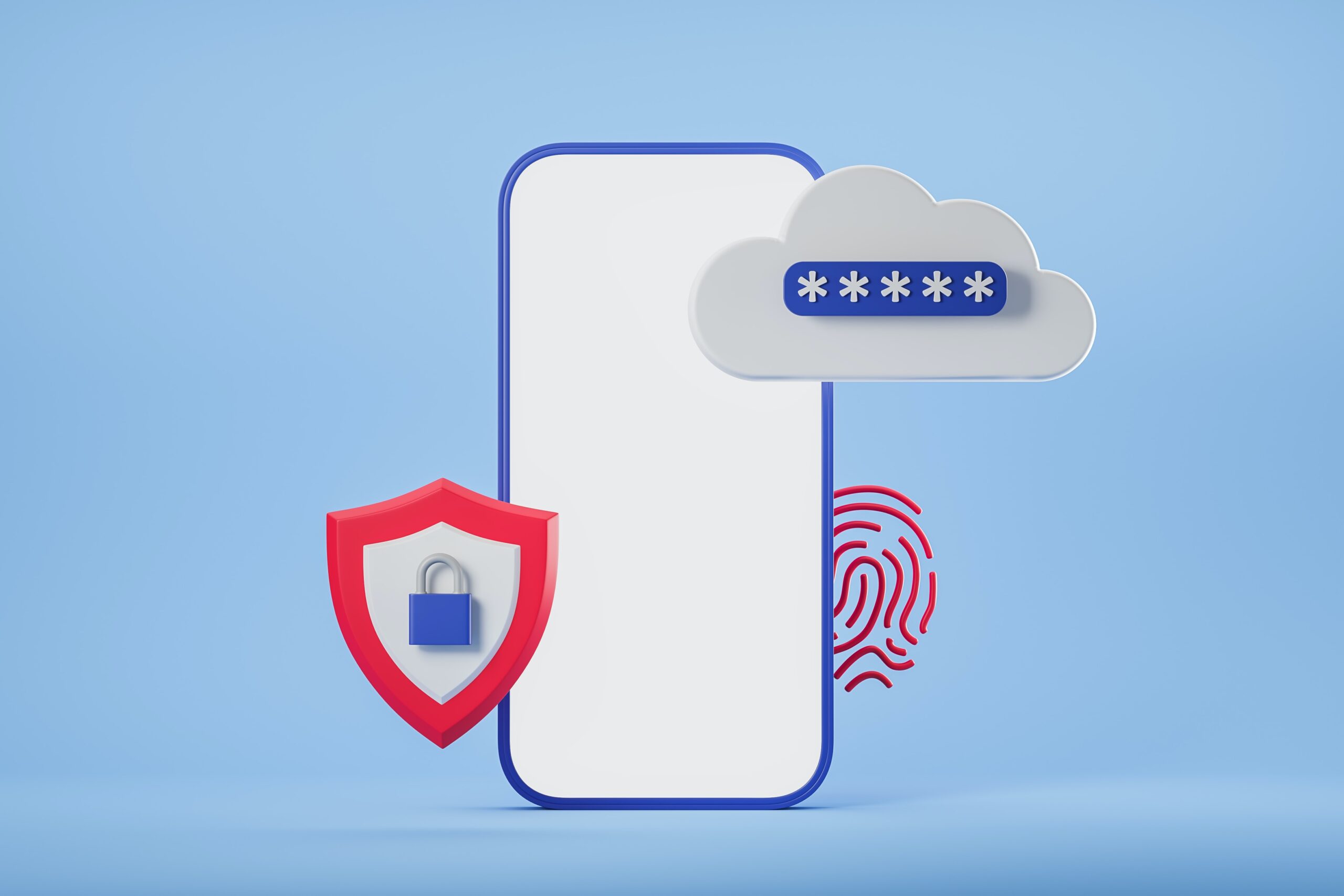Introduction: What’s a Good Way to Keep Personal Information Private Online?
With the rise of sophisticated cyber threats, the demand for robust strategies to keep personal information private online grows. At K3 Technology, we’re here to help safeguard your personal information.
In this blog, we’ll navigate through practical and effective measures to enhance your online privacy. From choosing strong passwords and secure browsing habits to exploring privacy-focused search engines and encrypted communication tools, we’ll cover what actions you can take to keep your personal information private online.

What is Online Privacy?
When we talk about online privacy, we refer to the protection of personal information shared and stored on the internet. This includes details such as usernames, passwords, financial data, and more. The risks encompass data breaches, identity theft, and unauthorized access. To mitigate these risks, individuals should adopt secure practices, such as creating strong, unique passwords, and being cautious about the information shared on social media.
Moreover, navigating secure websites, employing privacy settings, and staying informed about the latest security developments are integral aspects of online privacy. Furthermore, security education is important as cyber criminals are adept at exploiting vulnerabilities. In essence, understanding online privacy is not just a precautionary measure; it’s an active step towards a secure and resilient digital future.

What Are Common Threats to Online Privacy?
At K3 Technology, we believe it is important to understand the common threats jeopardizing online privacy. Here, we delve into the many potential risks individuals encounter in the digital landscape.
Data Breaches and Cyberattacks: Cybercriminals employ sophisticated methods to infiltrate systems and gain unauthorized access to sensitive information. Data breaches, wherein a system’s security is compromised, pose a significant threat. Cyberattacks, ranging from malware to phishing schemes, aim to exploit vulnerabilities in personal and organizational networks.
Tracking and Surveillance: We live in an era where our online activities are constantly monitored. Websites, advertisers, and even third-party entities track user behavior for various purposes, compromising privacy. Understanding the extent of tracking is essential to safeguard personal information.
Social Engineering and Phishing Attempts: Human manipulation through social engineering tactics and deceptive phishing attempts remains a prevalent threat. Cybercriminals often exploit trust and trick individuals into divulging confidential information. Recognizing these tactics is crucial to avoiding falling victim to such schemes.
K3 Technology emphasizes the importance of staying vigilant against these common threats. Adopting proactive measures, such as regular security audits and staying informed about emerging threats, is key to fortifying online privacy in an increasingly interconnected digital landscape.

What’s a Good Way to Keep Personal Information Private Online: Strategies
Wondering what’s a good way to keep personal information private online? K3 Technology is here to guide you through the different strategies for online security.
Strong Passwords & Multi-factor Authentication
A strong password acts as a formidable barrier against unauthorized access. Opt for a combination of uppercase and lowercase letters, numbers, and special characters. Avoid easily guessable information, such as birthdays or common words. The complexity and unpredictability of your password enhance its resilience against cyber threats.
To further protect your information, embrace Two-Factor Authentication (2FA). This involves combining your password with a secondary verification method, such as a code sent to your mobile device. 2FA significantly reduces the risk of unauthorized access, even if your password is compromised.

Secure Browsing Habits
Moreover, cultivating secure browsing habits is essential to safeguarding personal information online.
Secure HTTPS Connections: Commence your digital journey by prioritizing websites with secure HTTPS connections. The ‘S’ in HTTPS stands for secure, encrypting the data exchanged between your browser and the website. This encryption shields your information from potential eavesdroppers and ensures a secure online experience.
Caution with Public Wi-Fi: Exercise caution when connecting to public Wi-Fi networks. These networks, while convenient, can be hotspots for cyber threats. Avoid accessing sensitive information, such as online banking or personal emails, when connected to public Wi-Fi. Opt for Virtual Private Networks (VPNs) to create a secure and encrypted connection, adding an extra layer of protection.
Browser Privacy Settings and Extensions: Take control of your online privacy by exploring and adjusting your browser’s privacy settings. Enable features like ‘Do Not Track’ and consider using privacy-focused browser extensions. These extensions can block unwanted tracking and enhance your browsing experience without compromising your personal information.
By adopting these secure browsing habits, individuals can fortify their digital defenses and create a safer online environment.

Social Media Privacy
Furthermore, securing personal information on social media demands meticulous attention to privacy settings.
Adjusting Privacy Settings: Commence by navigating to your social media platform’s privacy settings. These settings empower you to control who sees your information and activities. Adjust profile visibility, restrict friend requests, and fine-tune who can tag you in posts. Regularly review and update these settings to align with your evolving comfort levels.
Understanding Third-Party App Permissions: Exercise caution when granting permissions to third-party apps. While these apps may offer convenience, they often seek access to personal information. Scrutinize the permissions requested and limit them to the essentials. Remove apps that are no longer necessary to minimize potential vulnerabilities.
Impact of Oversharing: Mindful sharing is pivotal in safeguarding personal information. Avoid oversharing details like home addresses, phone numbers, or travel plans. Cybercriminals exploit such information for malicious purposes. Implement a conscious approach to sharing, ensuring your posts align with your privacy preferences.
K3 Technology emphasizes the proactive management of social media privacy settings as a fundamental step in maintaining online security. By adhering to these practices, individuals can curate a safer digital space, contributing to a good day of keeping personal information private online.

Virtual Private Networks (VPNs)

Privacy-Focused Search Engines & Browsers
Consider utilizing search engines designed with user privacy in mind. These alternatives prioritize confidentiality, refraining from tracking and storing user data. Examples include DuckDuckGo and Startpage, offering a privacy-centric search experience without compromising the quality of results.
We also recommend using browsers that emphasize user privacy through built-in features and enhanced settings. Firefox and Brave, for instance, incorporate privacy-focused functionalities, allowing users to limit tracking, block unwanted ads, and maintain a more secure browsing experience. These browsers actively work towards minimizing data exposure during online activities.
Making the switch to privacy-focused search engines and browsers is a strategic way to keep personal information private online. These platforms offer a balance between user-friendly interfaces and robust privacy measures, empowering individuals to take control of their digital footprint.
Overall, adapting these practices & tools provide an added layer of security and help keep your personal information private online.

What Are the Legal Aspects of Online Privacy?
Navigating the digital realm involves adherence to privacy laws and regulations. Laws like the General Data Protection Regulation (GDPR) or the California Consumer Privacy Act (CCPA) in the United States are designed to safeguard user data. Understanding the legal framework provides individuals with a foundation for asserting their privacy rights.
Rights and Responsibilities of Individuals
In the digital age, individuals possess rights over their personal information. This includes the right to know what data is collected, the right to request its deletion, and the right to consent to data processing. Simultaneously, users bear the responsibility of using online platforms judiciously and safeguarding their credentials.
Privacy Violations
Should a privacy violation occur, individuals have the option to seek legal recourse. Reporting incidents to relevant authorities or filing complaints with data protection agencies is a proactive step towards addressing breaches. Legal frameworks are designed to hold entities accountable for mishandling personal information.
K3 Technology underscores the importance of being informed about legal aspects, empowering individuals to navigate the digital landscape with a clear understanding of their rights and responsibilities.

What is Data Deletion?
Data deletion involves the removal of personal information from digital platforms and databases. It is a proactive measure to limit the exposure of sensitive data and mitigate potential risks associated with unauthorized access.
Different platforms have varying procedures for data deletion. Familiarize yourself with the deletion processes of the online services you use, including social media platforms, cloud storage, and email providers. Follow the prescribed steps to ensure thorough data removal.
After initiating data deletion, confirm that the information is permanently removed from the system. In some cases, deleted data may linger in backups or archives. Verify with the service provider that the data is irreversibly expunged.
K3 Technology advocates for these proactive measures, emphasizing the importance of regularly managing and minimizing your digital footprint for enhanced online security.
Frequently Asked Questions
RELATED TO: “What’s a Good Way to Keep Personal Information Private Online”
How often should I conduct data deletion practices?
Regular data audits are recommended to evaluate the necessity of retaining information. Remove outdated or unnecessary data to reduce the risk of data breaches.
Can I seek legal recourse in case of privacy violations?
Yes, individuals have the option to seek legal recourse by reporting incidents to relevant authorities or filing complaints with data protection agencies.
How do encryption protocols contribute to online privacy?
Encryption protocols secure data in transit and at rest, preventing unauthorized access. They encode data in an efficient format, conserving bandwidth and ensuring that personal information remains confidential during transmission, bolstering online privacy.
Why is using a VPN essential for online privacy?
A VPN encrypts your internet connection, adding a layer of security. It masks your IP address, providing anonymity and protecting your personal information from potential cyber threats.
Conclusion: What’s a Good Way to Keep Personal Information Private Online
K3 Technology emphasizes the pivotal role individuals play in safeguarding their digital identities. By incorporating strategies like choosing strong passwords, embracing Two-Factor Authentication, and utilizing VPNs, users create robust defenses against potential cyber threats. Privacy-focused search engines and browsers further enhance this defense, ensuring a secure online experience.
Understanding legal aspects, rights, and responsibilities concerning personal data empowers users to navigate the digital landscape confidently. Regular data deletion practices, coupled with adherence to privacy laws, contribute to a streamlined and secure online presence.
K3 Technology encourages individuals to stay vigilant, adopt secure browsing habits, and leverage privacy tools available in today’s interconnected world.






